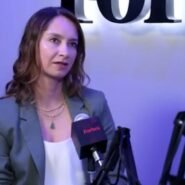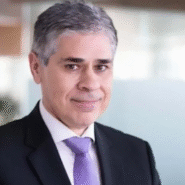Frederico Curado is a Brazilian engineer born in 1961 in Rio de Janeiro. At 63, he is the current CEO of Grupo Ultra, a major Brazilian conglomerate focused on gas and fuel distribution. With over three decades of experience in the aerospace industry, Curado is best known for his leadership at Embraer, where he rose through the ranks to become CEO of one of Brazil’s most prominent aviation companies.
Academic background and early career
By the age of 23, Curado had completed his formal education. He graduated with a degree in mechanical and aeronautical engineering from the Aeronautics Institute of Technology (ITA), one of Brazil’s leading institutions for aerospace studies.
He went on to pursue a specialization in international trade, followed by an MBA focused on international business management. This combination of technical expertise and commercial insight laid the foundation for a career that would span multiple global markets.
Shortly after completing his MBA, Curado joined Embraer, which at the time was still in the early stages of its corporate development. Founded in 1969, the company was born out of a merger between several Brazilian entities seeking to grow the country’s aerospace capabilities.
Entry into Embraer and technological leadership
Curado joined Embraer in 1984, just as the company was beginning to scale up its technological and production capabilities. Initially working in the technology and procurement sectors, he played a role in major early projects, including the launch of a new aircraft model in 1985 that enhanced the company’s access to cutting-edge technologies.
He quickly gained recognition within the company and was promoted to leadership roles in business development and strategic planning. His engineering background and understanding of international commerce positioned him as a key asset during Embraer’s expansion phase.
Vice presidency and corporate transformation
In 1995, Curado was appointed Executive Vice President of Planning and Development. This role coincided with one of the most challenging periods in the company’s history, as Embraer faced budget constraints and underwent privatization.
With new investments and strategic international contacts, Curado helped guide the company through a corporate transition that revitalized its global presence. By 1998, he was leading Embraer’s market strategy, overseeing its export growth and strengthening international partnerships.
In 2007, during one of Embraer’s peak periods, Curado became CEO. His leadership during this time solidified the company’s role as a global aerospace competitor, particularly in the regional jet market.
Crisis management and recognition
Not all of Curado’s decisions were easy. During the global economic downturn, Embraer implemented cost-cutting measures, including layoffs. Despite the internal consequences, the company continued to strengthen its international reputation, focusing on technological innovation and commercial resilience.
Curado received numerous accolades for his contributions to Brazilian aviation. Among these were the Medal of Aeronautical Merit and recognition from the Brazilian Association of Military Engineering.
In 2013, he joined the Executive Committee of Brazil’s Chamber of Commerce, expanding his influence beyond the aerospace sector.
New chapter at Grupo Ultra
In 2016, after more than 30 years with Embraer, Curado stepped down as CEO. Shortly afterward, he was appointed CEO of Grupo Ultra, a diversified Brazilian corporation involved in energy and logistics.
His appointment came at a time of strategic transition for the company, which had recently undergone leadership changes. Curado’s extensive management experience and track record of corporate growth brought renewed expectations to Ultra’s long-term business objectives.
Legacy and ongoing influence
Frederico Curado’s tenure at Embraer is remembered for strategic expansion, crisis navigation, and technical innovation. His leadership helped turn Embraer into one of the most significant aerospace companies in Latin America.
Today, at Grupo Ultra, he brings that same strategic focus to an entirely different sector—leveraging decades of cross-functional leadership to drive innovation in the energy market.







